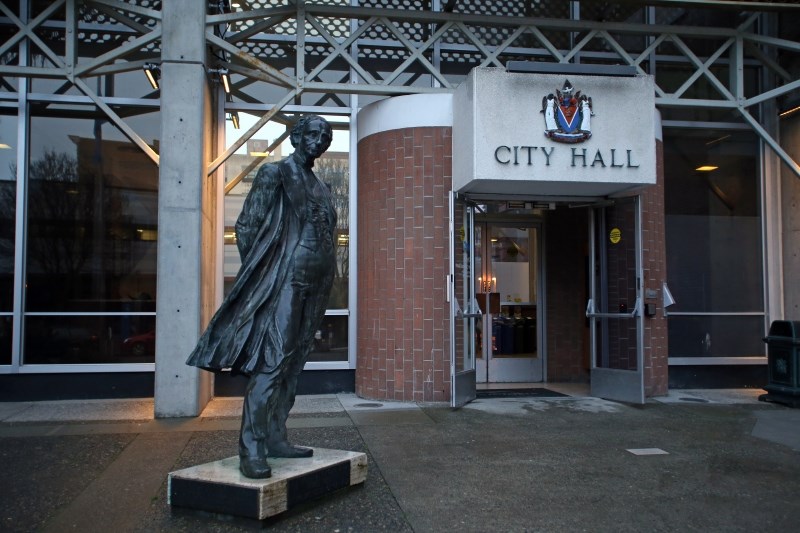Victoria councillors have set aside $1 million to help provide shelter for the most needy.
Councillors agreed to a proposal from Coun. Ben Isitt to use $750,000 of a $4.6-million surplus to increase funding to its housing reserve to $1 million from $250,000.
“I think we want these funds to potentially be available for addressing issues around homelessness and interim options — potentially housing to target the lowest income [group] with proper permanent housing,” he said.
Mayor Lisa Helps said the housing funds could be used for a variety of initiatives, ranging from a pilot project on micro-housing to subsidizing secondary suites. “I think we’re signalling to other levels of government that we’re here at the table for affordable housing and they had better step up,” she said.
Isitt raised the idea on bolstering the housing reserve in response to a report from police, parks and bylaw staff that said an ever-increasing number of homeless people are seeking shelter in city parks, draining staff resources, damaging park ecosystems and, in some instances, causing concerns for neighbours.
Isitt said making a major commitment to housing this year “will send the message that we’re serious about addressing homelessness and that partners, whether they’re other levels of government or other partners, have to step up to the plate. “
Only Coun. Geoff Young was opposed, saying he heard while campaigning that many people, particularly seniors, were struggling with the property tax load.
“This is not free money because it’s surplus. It’s money that taxpayers have put in,” Young said, adding that the city is contributing more than its share to social housing.
“We seem to lose no opportunity to help in this area. As I have said before in other contexts, it’s almost a case of: As we advance, others draw back.”
Councillors rejected a proposal put forward by Coun. Marianne Alto that $750,000 be used to provide a one-time subsidy to renters. Alto estimated that with about 19,000 rental units in the city, renters would have been eligible to receive about $40 per unit.
“It doesn’t seem like a lot of money, but I would argue that I’m sure all of us have been in different places in our lives where $40 to $42 would seem like a real big benefit for the short term.”
Isitt saw a number of potential problems with the initiative.
“I think you’d probably see more uptake among more affluent renters who don’t need a $40 handout,” Isitt said. “They know how to use computers. They might have their tenancy agreement scanned and sent in a PDF that can be forwarded to finance.”
Helps said she was strongly opposed. “The provincial government is responsible for rent subsidies and rent supplements and that is their role, if it’s anyone’s.”
A proposal to set aside $45,000 toward storage for homeless peoples’ belongings in a location yet to be determined was supported.
Council’s budget deliberations will continue next week. Combined with utility fees, the overall property tax increase to homeowners would be 2.91 per cent or $86 on the average home assessed at $504,000, and 2.98 per cent or $216 on the average businesses assessed at $500,000.



